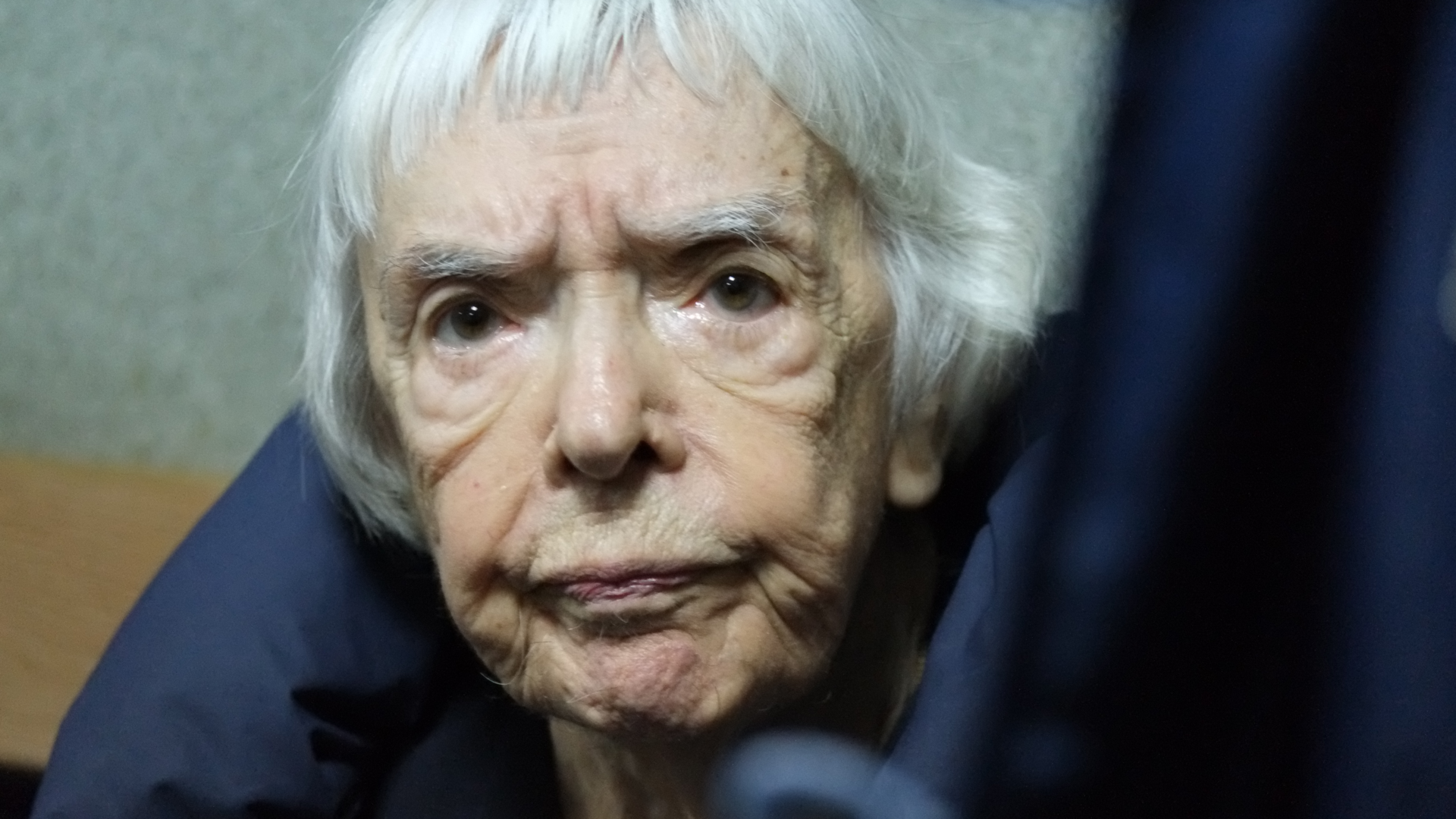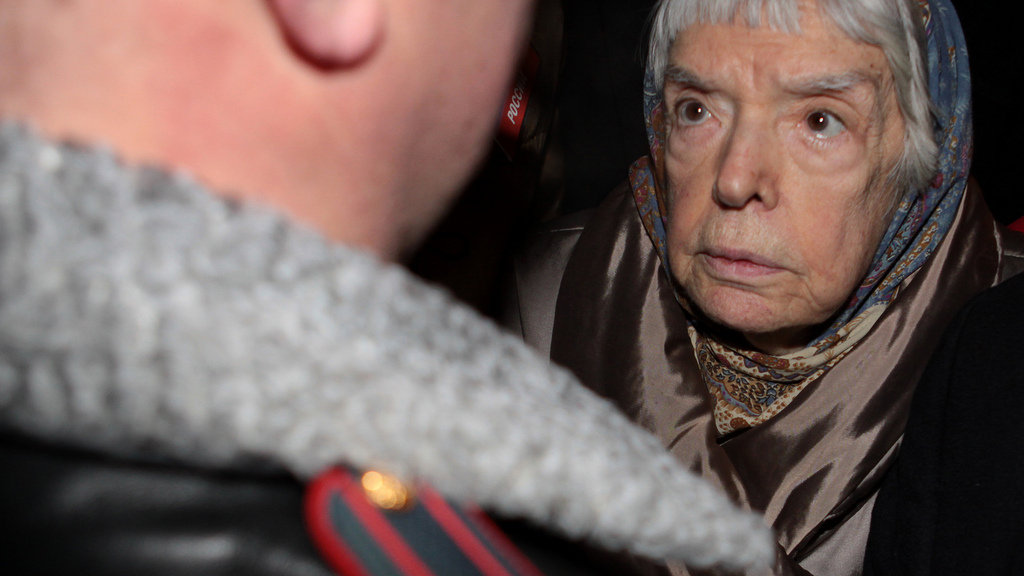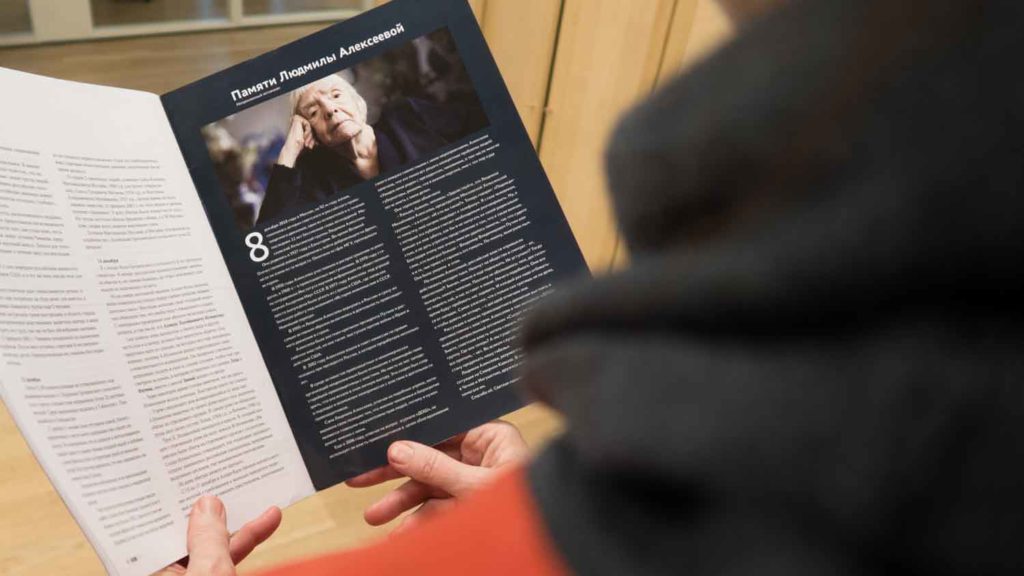“Lyudmila Alexeyeva was always committed to defending the rights of people and attracted many people to human rights work. She united the efforts of many human rights organisations,” continues Lubov Vinogradova, Russian Research Center (Moscow). “The era of human rights work in Russia is not over… As a role model, Alexeyeva inspires the next generation of human rights defenders.”
Lyudmila Alexeyeva was among the co-founders of the prominent Moscow Helsinki Group in 1976, established to monitor the civil rights aspects of the landmark Helsinki Accords agreed in 1975.
“She could find a common language with each and every human rights defender, regardless of whether they were loyal supporters of the government or radical opponents of the regime. Her words have always attracted attention as she spoke in a clear and strong manner expressing her thoughts on human rights, as a matter of natural humanity.”
Moscow Helsinki Group is a member organisation of the Russian Research Centre for Human Rights, which is in turn a member of the network of Human Rights Houses. Alexeyeva led the Moscow Helsinki Group from 1996 until her death in December 2018.
“Human rights defenders are agents of change, and Lyudmila Alexeyeva – as the ‘mother’ of the Helsinki Movement – was a shining example of this. She risked her own freedoms and dedicated her life to strive for change through all means possible. She protested, negotiated, and held state authorities accountable for their international human rights commitments,” comments Ane Tusvik Bonde, Senior Adviser at HRHF.
DOSH magazine published the article “In Memory of Lyudmila Alexeyeva: Adamant Optimism” in its December 2018 edition. The magazine is the first and only independent printed media in the North Caucasus region, and is issued by Initiative Center for the Caucasus, a member of the Russian Research Centre for Human Rights.
The following background on Alexeyeva is based on a translation of this article.
Lyudmila Alexeyeva was a tough critic of President Putin and the Russian authorities, but she also worked with them in some capacities, such as joining the Human Rights Commission under the President of Russia and working as its member for several years. She reasoned that officials and bureaucrats are the actual violators of human rights, and a dialogue with them is needed.
When asked by DOSH about her interaction with the authorities, she gave insight into her practical yet principled approach to human rights, noting that this interaction helps people solve their problems: “After officials see me next to the president, they think I’m an important person. Since then it’s been much easier for me to deal with them”.
“Previously I used to make calls and say: ‘Hello, this is Lyudmila Alekseyeva, the Chair of the Moscow Helsinki Group,’ and hear in response: ‘Well, and who are you?’ Now they respond: ‘Please, wait a minute, my director will pick up the phone’. I have become a person worth talking to. Now my task is not to scare them with my radicalism and not to let them lose the idea that I am an important person. Owing to this, I have been able to help many people. So, consider who has won the game, Vladimir Putin or me and those whose rights I tried to defend? In my opinion, it is us who have won.”
On the methods of the Russian authorities, Alekseyeva noted: “They put pressure on the society and wait for the reaction: ‘Oh, they have swallowed this, haven’t they? So we can push it further on. Or have they not given way? Then we will wait and press on them later.’ Therefore, I am not under any delusion: They say it is enough just to sound the alarm and we will be left alone. Nothing of the kind. The authorities will always try to crush us. And each time we need to fend off their attacks. The worst thing is that we have to spend so much effort to fight back against their attacks instead of our work.”
Considering the chances for the human rights movement to withstand the confrontation with the authorities, Alekseyeva expressed uncompromising optimism: “Will they finally swallow us? You know, the Soviet government wanted to gobble up the Moscow Helsinki Group. Where is that government now? But we still exist! I am not at all sure that it is all over for now — no. In any case, I am not going to predict our death until it has happened.”
Lyudmila Alexeyeva was born in 1927 in Yevpatoria (Crimea). She graduated from the History Department of the Moscow State University and taught history. Alekseyeva participated in the distribution of samizdat [dissident underground press and self-published books in the USSR] in the 1950s and began to take part in human rights actions in the 1960s.
She was forced to leave the USSR for the United States under threat of arrest in 1977 and remained there until 1993. On her return to Russia, Lyudmila Alekseyeva again got involved in the activities of the human rights movement in the country.
Thumbnail photo: Ilya Voyager, WikiCommons.







